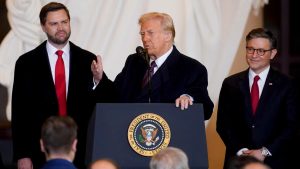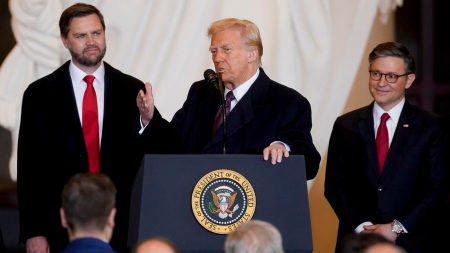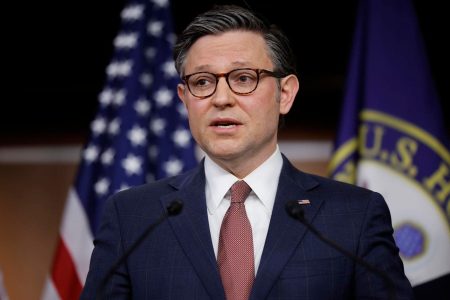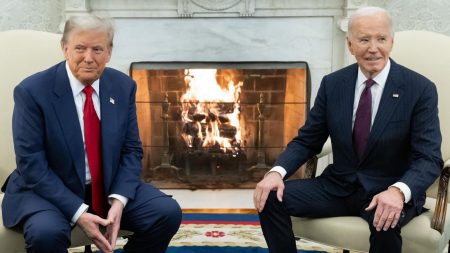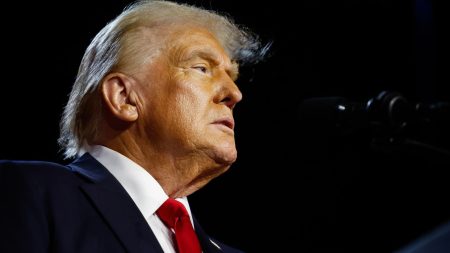Davenport Extreme Pools & Spas, Inc., entered into a contract with Thomas and Elizabeth Mulflur of Louisville, Kentucky, in the summer of 2021 to build a pool (and hot tub) for the Mulflurs. There were delays in the start of construction of the pool — in fact, it was not ever to be constructed. After the delays, the Mulflurs twice attempted to cancel the Davenport contract and obtain a refund of the moneys they had paid for the project, which was the full amount. Davenport, however, offered to return only one-half of the Mulflurs’ moneys on the condition that the other one-half would be treated as a non-refundable deposit. The Mulflurs ultimately brought a civil lawsuit. Apparently, Davenport also the subject of criminal charges which it ultimately settled.
Another couple under contract with Davenport to build their pool were Keith and Carla Judd, whose pool was completed by Davenport. The pool took longer than the Judds expected and they were not happy with Davenport by the time it was done. At some point, Elizabeth Mulflur, Mandy Mulflur Masterson, and Carla Judd started expressing their concerns about Davenport on social media.
Bradley and Jocelyn Jones decided to cancel their existing $97,770 contract with Davenport, forfeiting about $39,000 in the process, with the stated excuse that they were anticipating the costs of an expected child. Davenport claimed that the Mulflurs contacted the Jones and told them that they were better off cancelling their contract with Davenport. Davenport thus brought a lawsuit against the Mulflurs alleging defamation and tortious interference with contractual relations and prospective business advantage.
Shortly after Davenport sued the Mulflurs, Iowa adopted the Uniform Public Expression Protection Act (“UPEPA”), which is an Anti-SLAPP law that allows for the early dismissal of hopeless lawsuits which infringe upon the free speech rights of the defendants. The Muflurs brought a UPEPA motion to dismiss Davenport’s lawsuit, and it was granted by the Kentucky trial court. The trial court also awarded the Mulflurs certain attorneys fees they had spent in having motion drafted and filed.
Davenport then filed a timely appeal to the Kentucky Court of Appeals challenging the constitutionality of the UPEPA, which will be discussed in greater detail below. At this point, the Kentucky Attorney General’s office intervened to file a brief in support of the constitutionality of this new legislation.
As an aside, just days before the oral argument in this case, Tracy Davenport plead guilty in Indiana to charges that apparently (it is not clear) were based on Davenport taking money but not completing projects as promised. This was not relevant to the instant appeal, and the Court of Appeals ruled that it would not take notice of it.
At any rate, all of the foregoing resulted in the opinion in Davenport Extreme Pools & Spas, Inc. v. Mulflur, 2024 WL 2982718 (Ky.App., June 14, 2024), which we shall next examine.
The Court of Appeals started its analysis by noting that the appeal of a UPEPA special motion should be considered de novo, which means that it gets a fresh look by the appellate court with no deference to the opinions of the trial court.
The first question was whether the UPEPA applied to this particular case at all, since the UPEPA had not yet been adopted by Kentucky when the case was originally filed by Davenport. The issue was whether the UPEPA effected an impermissible retroactive change in the substance of the law (although the Court of Appeals did not use the term, basically an ex post facto law). This in turn lead to the question of whether the UPEPA operated to diminish Davenport’s rights under the pre-UPEPA law, as opposed to a procedural or remedial (think in terms of available remedies) change that did not diminish Davenport’s rights.
The Court of Appeals held that Davenport’s substantive rights were not changed, since the only thing that happened under the UPEPA was that Davenport’s case was dismissed before Davenport could engage in discovery, and discovery is a procedural right and not a substantive one. The Court of Appeals further concluded that the UPEPA creates no substantive rights, but more on that in the analysis section of this article.
Davenport next argued that the UPEPA violated Kentucky’s jural rights doctrine, as established by the Kentucky Constitution. The jural rights doctrine essentially prohibits the Kentucky legislature from abolishing certain common-law rights to recovery, including for defamation, if those rights existed prior to the Kentucky Constitution’s adoptions in 1891. This argument fell for the same reason, being that the UPEPA did not alter the substantive rights of Davenport but was rather in the nature of a procedural change.
The next argument by Davenport was that the Mulflurs’ speech was not protected because it was in the nature of private speech, shared among only a few persons and not protected by the UPEPA, as opposed to public speech. The Court of Appeals, however, pointed out that the UPEPA is not limited in its protection to public speech, but rather to free speech that is “on a matter of public concern”, which is quite different. Public speech is that made in an open public forum, whereas “a matter of public concern” could include purely private speech made about the public topic being discussed. On this point, the Court of Appeals noted that the UPEPA’s drafters ” clearly intended the procedures to apply widely to expressions both public and private, especially speech relating to consumer opinions, commentary, complaints, reviews, and ratings of businesses.” Such being the case here, Davenport lost on this point as well.
The next claim by Davenport was that the trial court should not have dismissed its tortious interference claims, which requires a number of elements but is basically that the Mulflurs knew that Davenport had contracts with others to build their pools and without privilege or justification caused them to breach those contracts. This claim failed because Davenport was largely speculating that it was the Mulflurs’ speech which caused the Jones (the folks expected a baby) to terminate their contract with Davenport, as opposed to just telling the Jones what happened and that Davenport was bad news. Although the trial court found that the Mulflurs were willing to interfere with Davenport’s contract with the Jones, that wasn’t enough to rise to the level of tortious interference. Thus, the Court of Appeals:
“We agree. The statements do not evince malice or significantly wrongful conduct. [] They express opinions between allegedly aggrieved parties based on known facts between the parties. And, more significantly, they show no causal relationship between the Joneses’ cancelation of their contract and any of the statements made. At worst, they show that Elizabeth Mulflur wanted the Joneses to cancel their contract. However, the Joneses expressly stated they canceled their contract due to the extraordinary expenses of their child’s birth – charges one would hardly anticipate incurring – and were willing to forfeit almost $40,000 in the process. And even if Elizabeth Mulflur’s statements somehow influenced the Joneses to cancel their contract, Elizabeth Mulflur personally gained nothing from the cancelation. The Joneses did not become customers of Elizabeth Mulflur. And no malice can be shown by the Joneses lawfully forfeiting a sizable deposit to Davenport for doing no work. As the Trial Court found, Davenport needed more evidence to make its case, and Davenport could have and should have utilized the limited discovery provisions to make prima facie cases of the tortious interference claims. Having failed to present at least some prima facie evidence of those claims, particularly regarding causation, the Trial Court properly granted the motion in favor of the Mulflurs.”
Tracy Davenport also made a claim for defamation against the Mulflurs which was dismissed, and the Court of Appeals took that issue up next. Examining the statements at issue, the Court of Appeals determined that they were merely opinion and not statements of fact: “The parties explicitly and impliedly understood the statements were opinions based on the experiences they were having with Davenport’s claimed, repeated failures to install pools timely.” Here, the Court of Appeals engaged in a lengthy examination of each statement claimed to be defamatory, holding each one to be only opinion, but these issues are beyond the scope of this article and interested readers can consult the Court of Appeal’s writing for more.
The remaining issues go to Davenport’s appeal of the attorney fees that were awarded against it and in favor of the Mulflurs for the latter’s expenditures in bringing their UPEPA special motion.
Davenport’s first argument was that the UPEPA fee provision was unconstitutional because it was uncertain what attorneys fees “related to the motion” meant. The argument here was that “related to the motion” could mean either those attorneys fees strictly related to the UPEPA motion, or for the litigation generally until it was dismissed. The Court of Appeals disagreed:
“Here, the discretion available is for a Trial Court to shift fees at a very early stage of the proceedings when a party has been targeted for exercising its protected speech. The fee-shifting provision clearly exists to make whole a party who – invoking UPEPA’s procedural mechanisms – incurred court costs, attorney’s fees, and litigation expenses. We are confident that the Courts in this Commonwealth are able to examine a fee-shifting request in these circumstances and fashion a remedy that addresses those court costs, attorney’s fees, and litigation expenses that are related to the motion invoking UPEPA’s procedures. Regardless, the statute is at least intelligible enough for Trial Courts to examine the fee-shifting request and determine what court costs, attorney’s fees, and litigation expenses are related to the UPEPA motion, an examination that is inherently fact-specific and will require a Trial Court to exercise its discretion and fashion a remedy that fits within one of many potential remedies. Accordingly, the statute is not void-for-unintelligibility or uncertainty. We affirm the Trial Court on this issue.”
Davenport next argued that the fees awarded by the trial court were excessive because they were not limited to the UPEPA motion and instead encompassed other things in the litigation until it was dismissed. The Court of Appeals noted that Davenport had waived this argument by not objecting to specific fee items at the time they were considered by the trial court. Also, the Court of Appeals found these fee items reasonable because it encompassed attorney tasks necessary to get the litigation to the point where the UPEPA special motion could be heard. However, the Court of Appeals likewise denied the Mulflurs’ request for additional attorney fees.
Davenport’s last argument was that the attorney fee award should not have been reduced to a civil judgment that the Mulflurs could immediately attempt to collect upon. Here, Davenport argued that it had appealed the trial court’s granting of the UPEPA special motion, which in theory divested the trial court of jurisdiction, prior to the time that the trial court entered the attorneys fee award as a civil judgment. However, the Court of Appeals found that Davenport had not properly preserved the issue for appeal and thus it was lost.
The bottom line to all this was that the trial court’s granting of both the UPEPA special motion and the attorneys fee award against Davenport was affirmed.
ANALYSIS
Much of this opinion is very straightforward, well researched and meticulously drafted to the extent that there is little to add to what was said by the Court of Appeals. There are several juicy UPEPA issues, however, that do deserve some commentary.
Although seemingly a minor point, the Court of Appeals was spot on to hold that an appeal of a UPEPA special motion should be reviewed de novo. Such de novo reviews are typically limited to appeals that strictly and exclusively involve questions of law, as opposed to other appellate reviews where the trial court’s factual findings are given considerable deference. With a UPEPA special motion, the trial court does not make any findings of fact but instead looks to basically two things:
(1) Do the facts as alleged by the plaintiff, and assuming that they are true, create a viable claim even in the light of the defendant’s constitutional and other defenses?
(2) Can the plaintiff show a minimally-sufficient amount of evidence to support each element of the claim such that it would be appropriate to let the issue go to the fact finder?
Both of these questions are purely questions of law, not fact. If a court makes a determination that a fact exists, that is a question of fact. Conversely, if a court is only looking to see whether a minimum amount of evidence supports the assertion of a fact, that is a question of law. Thus, on a UPEPA special motion (just as with a motion for summary judgment) there are no factual questions being decided but rather all the issues are purely those of law. The Court of Appeals nails this one.
The Kentucky Court of Appeals swings and misses on another issue, however, which is its assertion that the UPEPA is purely a procedural statute that confers no new substantive rights. This is true as to the plaintiff, but it is not true as to the defendant. For a defendant, the UPEPA creates a substantive right to be free of abusive or baseless litigation in derogation of free speech rights at an early stage in the proceeding. This is explained at length in another of my articles which you can read here.
The last issue is the most important and demonstrates in part why the UPEPA is the strongest Anti-SLAPP legislation currently on the books. Among the UPEPA’s protections is the “exercise of the right of freedom of speech or of the press, the right to assemble or petition, or the right of association, guaranteed by the United States Constitution or [cite to the state’s constitution], on a matter of public concern.” [Emphasis added]
As the Court of Appeals points out, the UPEPA would protect any speech that concerns a matter of public concern, whether the speech itself is public or private and made in an auditorium or in a closet. The only thing that is important on this point is that the issue being discussed is one of public concern. The Court of Appeals contrasted this language with New York’s (very mediocre) Anti-SLAPP statute which is limited to actions “involving public petition and participation” and which has been interpreted to require the speech to have been made in a public forum for it to be protected. Notably, other jurisdictions with quality Anti-SLAPP laws but which have not adopted the UPEPA, such as California and Nevada, use the phrase “in connection with a public issue” that has a broad sweep that is similar to the UPEPA such that it doesn’t matter where the speech was uttered.
A final word that this decision of the Kentucky Court of Appeals is subject to further appeal to the Kentucky Supreme Court, so we’ll have to wait and see what happens there if anything.
Read the full article here

